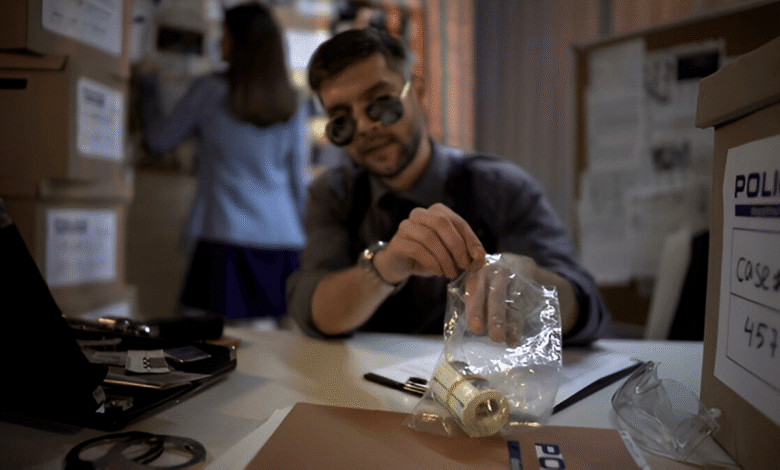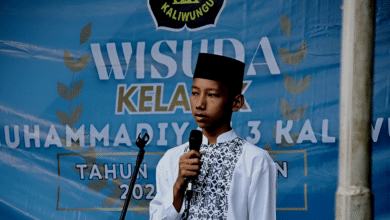Police Misconduct Lawsuits in Illinois A 2025 Legal Overview
Police misconduct lawsuits in Illinois 2025 legal overview examining accountability reforms qualified immunity challenges and trends in civil rights litigation against law enforcement.

Police misconduct lawsuits in Illinois have become a focal point of legal and public discourse as communities demand greater accountability from law enforcement. In 2025, these cases continue to highlight systemic issues such as excessive force, racial bias, and lack of transparency within police departments. With Illinois being home to some of the nation’s highest-profile misconduct settlements, the legal landscape is evolving through court rulings, legislative reforms, and advocacy efforts. This article examines the current state of police misconduct litigation, key legal challenges, and the impact of recent policy changes on victims seeking justice.
The surge in police misconduct lawsuits reflects growing public scrutiny over law enforcement practices, particularly in cities like Chicago, where multimillion-dollar settlements have become routine. As courts grapple with doctrines like qualified immunity and lawmakers push for stronger oversight, the outcomes of these cases carry significant implications for civil rights and police reform. From groundbreaking verdicts to persistent barriers in the legal system, this overview explores how Illinois is addressing police accountability in 2025 and what it means for the future of justice.
Police Misconduct Lawsuits in Illinois A 2025 Legal Overview
Federal Civil Rights Claims
Most police misconduct lawsuits in Illinois are filed under 42 U.S.C. § 1983, a federal statute that allows individuals to sue government officials including law enforcement for violating their constitutional rights. Common claims include Excessive force (Fourth Amendment violations). False arrest or unlawful detention (lack of probable cause). Unlawful searches and seizures (warrantless searches, racial profiling). Failure to intervene (when other officers witness misconduct but do nothing). Successful plaintiffs can recover compensatory damages (medical bills, lost wages, pain and suffering) and, in some cases, punitive damages to deter future misconduct.
State Law Claims & Additional Legal Avenues
Beyond federal claims, Illinois plaintiffs can file lawsuits under state tort laws, including Assault and battery (for unjustified physical force). Intentional infliction of emotional distress (extreme or outrageous conduct). Malicious prosecution (wrongful arrests leading to baseless criminal charges). Wrongful death (in cases of fatal police encounters). Illinois also has the Illinois Civil Rights Act, which prohibits discrimination by government entities, adding another layer of legal protection against racially motivated policing.
Legal Hurdles Qualified Immunity & the Police Integrity & Accountability Act
Despite these legal avenues, plaintiffs face major obstacles Qualified Immunity Courts often dismiss cases unless plaintiffs can prove the officer violated “clearly established” constitutional rights a high bar that shields many officers from liability. Police Integrity and Accountability Act (2022): While this law mandates body-worn cameras, strengthens misconduct reporting, and enhances officer decertification, enforcement remains inconsistent. Police unions and procedural delays often weaken its impact. Statute of Limitations: Plaintiffs must file § 1983 claims within two years (federal) and state tort claims within one to two years, creating tight deadlines for gathering evidence.
Recent Trends in Police Misconduct Litigation
In 2025, Illinois courts have seen an increase in lawsuits involving no-knock raids, Miscarriage of justice, and custodial deaths. High-profile cases, such as the Chicago Police Department’s repeated misconduct settlements, have drawn national attention. The city has paid millions in settlements, yet activists argue that systemic issues persist. Another emerging trend is the use of AI and forensic technology to challenge police narratives. Video evidence from body cams, dashcams, and bystander footage has become crucial in disproving official reports. However, discrepancies in police testimony and delays in releasing footage continue to hinder transparency.
Challenges in Pursuing Police Misconduct Claims
Despite legal avenues for redress, plaintiffs face numerous obstacles. Qualified immunity remains a contentious issue, with courts often dismissing cases if no prior ruling has addressed nearly identical misconduct. Additionally, the statute of limitations for filing claims is strict, requiring swift legal action. Police unions and government attorneys also vigorously defend Police Misconduct cases, leading to prolonged litigation. Many victims, particularly marginalized communities, lack the resources to sustain lengthy court battles. Even when settlements are reached, they often include no-admission clauses.
Legislative and Policy Reforms in 2025
Strengthened Oversight Through the Illinois Trust Act & Decertification
The expanded Illinois Trust Act (2025) now mandates automatic suspension for officers with three or more sustained misconduct complaints within a 5-year period. A first-in-the-nation statewide decertification database publicly tracks officers fired for Police Misconduct, preventing “wandering officers” from being rehired elsewhere in Illinois. New provisions require independent prosecutors for police misconduct cases, removing decision-making from local district attorneys who frequently work with accused officers.
Elimination of Binding Arbitration & Continued Challenges
The 2025 repeal of binding arbitration for disciplinary cases gives police chiefs final authority in terminations, closing a loophole that previously allowed 72% of fired officers to regain jobs through arbitration. Critics highlight gaps: The reforms don’t address qualified immunity, and without federal legislation, disciplined officers can still seek employment in other states. Data shows 40% of decertified officers from 2020-2024 found law enforcement jobs in neighboring states, underscoring the need for national reform. These changes represent Illinois’ most aggressive police accountability measures to date, though their long-term effectiveness depends on consistent enforcement and complementary federal action.
The Role of Civil Rights Organizations
Groups like the ACLU of Illinois and the Chicago Lawyers’ Committee for Civil Rights play a pivotal role in police misconduct litigation. They provide legal representation, lobby for policy changes, and track patterns of abuse. Class-action lawsuits against entire departments have also forced structural reforms, such as federal consent decrees mandating training and oversight improvements. Community-led initiatives, including cop watch programs, have empowered citizens to document police interactions. These efforts, combined with legal advocacy, are gradually shifting public perception and judicial outcomes.
Read More: Bankruptcy Myths Debunked What California Residents Should Really Know
Conclusion
Police misconduct lawsuits in Illinois remain a critical avenue for justice in 2025, yet systemic obstacles continue to challenge meaningful accountability. While legal reforms, increased transparency measures, and high-profile settlements have pushed law enforcement toward greater oversight, doctrines like qualified immunity and institutional resistance still shield many officers from consequences. The growing use of body camera footage and AI-assisted evidence has empowered plaintiffs, but disparities in legal resources and lengthy court battles often leave victims without redress. As Illinois navigates this complex landscape, the tension between police authority and civil rights persists, demanding further legislative and judicial action.
Looking ahead, the trajectory of police misconduct lawsuits in Illinois will hinge on sustained advocacy, policy reforms, and cultural shifts within law enforcement. The state’s recent measures such as expanded officer decertification and limits on arbitration signal progress, but true accountability requires deeper systemic change. For communities disproportionately affected by police abuse, litigation remains both a tool for justice and a reminder of the work still needed. As courts interpret new laws and public scrutiny intensifies, the outcomes of these cases will shape not only Illinois’ legal framework but also the national conversation on policing and civil rights in the years to come.
FAQs
What is the most common basis for police misconduct lawsuits?
Most lawsuits allege violations of 42 U.S.C. § 1983, including excessive force, false arrest, or unlawful searches under the Fourth Amendment.
How does qualified immunity affect these cases?
Qualified immunity shields officers unless their misconduct violates “clearly established” law, making many cases difficult to win.
What reforms has Illinois implemented in 2025?
New laws include expanded body-cam mandates, a public database of decertified officers, and limits on arbitration for disciplined cops.
Can victims sue for emotional distress?
Yes, plaintiffs may file state tort claims for emotional harm, though proving damages can be challenging.
How long do victims have to file a lawsuit?
The statute of limitations is typically two years for federal claims, but state law may allow extensions in certain cases.











